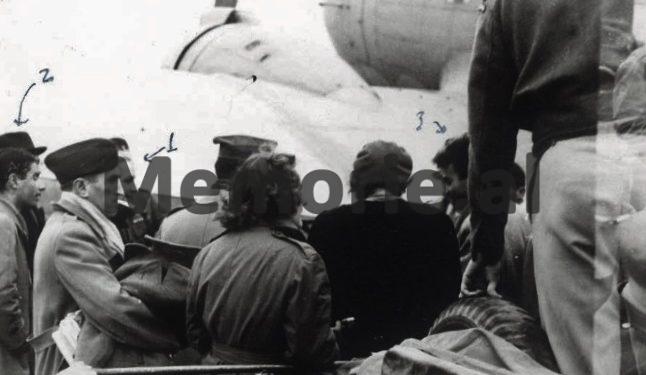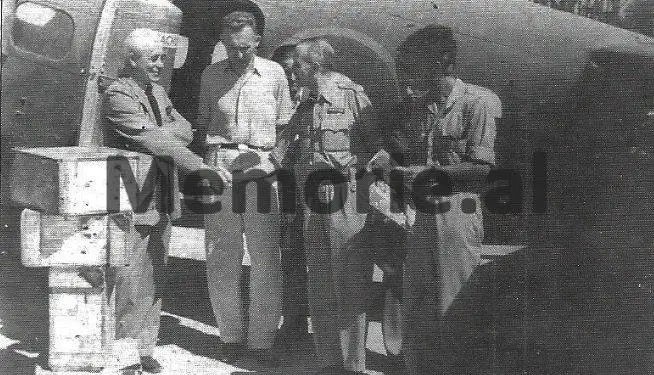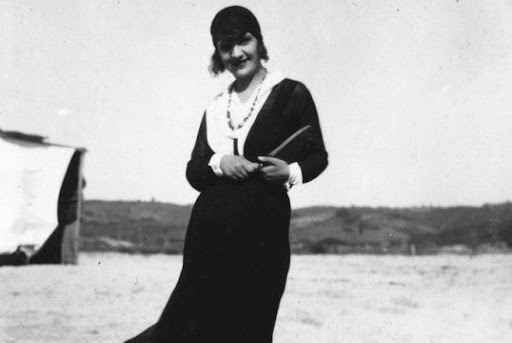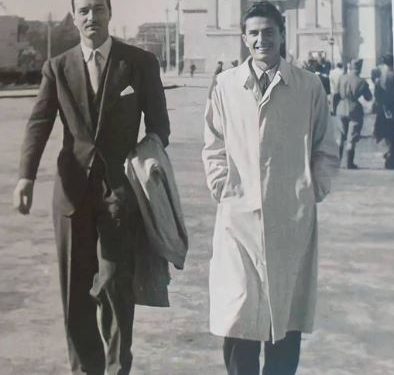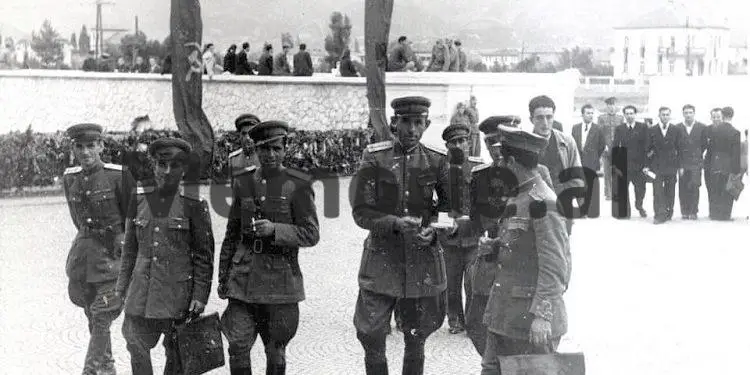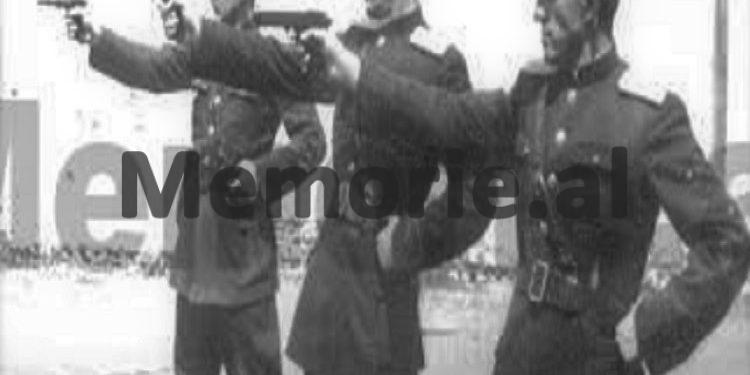By Agustin Mirakaj
Memorie.al / In the first years after the Second World War, among the priority directions of the work of the authorities in Albania, was the suppression of any resistance and the elimination at all costs of the opponents of the communist regime. For this, all the links of power were engaged, but especially the structures of the People’s Protection Division, the State Security Organs, the Prosecutor’s Office and the Military Courts.
After the suppression of the uprising of the Great Highlands and beyond, January 1945; Postriba uprising, September 1946; “Special Trials” in Tirana, March – April 1945; the discovery and punishment of the leaders and members of the organizations “Albanian Union” and “Democratic Union”, January – February 1946; the trial against the “Group of Deputies” of the “National Democratic Organization”, September 1947; extinguishing the armed resistance efforts of Muharrem Bajrakatari (Kuka), Mark Gjon Markaj (Mirdita), the Mirakajs of Puka, the leaders of Tropoja, Dibra and Dukagjin; another wave of strikes by the organs of the dictatorship continued throughout 1948, focusing on the opponents of the communist regime, especially those who were identified as friends and collaborators of the representatives of the Anglo-American missions in Albania, but the priority of the attack on foreign citizens, who for various reasons resided in Albania.
The investigative-judicial processes against the arrested persons ended with harsh punishments, which, in addition to the liquidation of political opponents and their resistance, also aimed to instill fear in certain layers that were dissatisfied with the communist regime.
Following this dossier, we will publish for the readers, the biographical profiles and the accusations formulated by the organs of the dictatorship, against sixty-one persons arrested during 1948; forty-nine Albanian citizens, nine Russian citizens (White Russians), one German citizen, one Austrian, one Italian and one French citizen (of Albanian origin).
For this dossier, archival documents of the Central Archive of the Albanian State, namely Fund 492 (General Prosecutor’s Office), years 1947 – 1948, have been used. We have tried to preserve the language of the archival document, especially in the part of the wording of the charges, which clearly shows that some of them are fabricated by the State Security bodies, with the sole purpose of increasing the punishment measures against those who were considered opponents of the communist regime in Albania.
Security charges against Alfred Ashiku and Jani Temos
On February 15, 1948, the Directorate of State Security, sent to the General Prosecutor’s Office for competence and action, a copy of the minutes of the defendant Alfred Ashiku and an indictment of his activity, developed against the popular power.
Alfred Ashiku was accused of having close ties with the Anglo-Americans, and at the time when the pharmacies were nationalized, he was affected and as such was put at the service of the Anglo-Americans. It has been related to Thomas Stefani, Smith, Robinson, Votrouz, Richardson, Palmer, etc.
When asked how he met the aforementioned, he claimed that the occasions were when he went to “Dajti” and elsewhere to have fun. Whereas, according to the data of the State Security structures, he frequented the English Mission and there he got to know and formed ties with them. Alfred Ashiku, had not spoken in the investigation process, preferring death rather than clarifying his position in the past and, therefore, his process was very dry.
He had been a member of the Social Democratic Party and as such had been tasked with working together with Dhori Xibinaku with all the wavering elements. Regarding the electoral elections of December 2, 1945, he said that these went in favor of the Front, due to the issue of pressures and that after them, the government would take arrest measures for all those who would not vote.
He had a relationship with Malik Bushati and during the German occupation, Alfredi was allowed to carry a revolver, as he had great friendship with some high German authorities.
His social circle was composed of opponents of the communist regime, such as; Mark Gurashi, Tika Texha, Lik Toptani, Rakip Strazimiri, Felatun Vila, Sara Blloshmi, Simon Pogu, Prof. Janko Hambicek, Suat Asllani, Haki Karapici, Agostin Bonati, Dr. Irfan Pustina, etc. Alfredi had connections with the pharmacists who made up the opposing group, which was related to the “Group of Deputies” organization.
In Alfred Ashiku’s group, according to the statements of one of the implicated, the following people were also part of it: Enver Sazani, Fadil Kotona, Pasholli, Tomini, Nocka, Papadhopulli, etc. They maintained connections with the organization through Enver Sazan and Dr. Irfan Pustina.
In relation to these accusations, the defendant Alfred Ashiku did not accept, maintaining a firm denial position. This had caused him to be identified as a person who hated the communist government, which presupposed a more severe punishment for him.
On January 27, 1948, the Directorate of State Security would send the minutes of the defendant Jak Kodheli and Jani Temos to the General Prosecutor’s Office for competence and action, as well as the accusation sheets for their opposing activity towards the communist government .
Jani Temos was from Tunis, Africa, with French citizenship and Albanian origin: his father was from Korça and his mother was from Hoçishti i Devolli. In May 1940, he had come to Albania for a friendly visit to his family relative Korçë e Hoçisht, where, due to the start of the war between France and Italy and the Italo-Greek war, he had stayed for almost 17-18 months.
He fled Albania at the end of 1941 – sold with the intermediary of his brother-in-law, Ernest Jast, attaché of the Swiss Consulate in Tunis, who sent him the necessary formalities. After going to Tunis, in May or June 1944, he voluntarily enlisted in the ranks of the British army, in the VIII Army, and came to Italy.
Together with the Army, he went to Northern Italy and, when the Army began to return to Southern Italy, he illegally abandoned the English Army, leaving to come to Albania.
The way he had come to Albania was considered highly suspicious by the Security Bodies: “Being a soldier of the VIII Army in Loreta, he boarded a train coming from Germany with internees, where there were also some Albanians , under the pretext that he was bored and to pay a visit (after the above visit of 18 months). On the way, although he wore the motto of the English soldier, he was able to pass and came to Bari, without being caught”.
When he arrived in Bari, together with four Albanians, he presented himself at the Albanian Mission there, but did not report his true identity, but presented himself as an internee with the others, for fear of being handed over to the British. After more than a month of staying near the Albanian Mission in Bari, on August 6 or 8, 1945, he came to Albania by plane, landing in Tirana.
Here he gets a residence permit and goes to Korça, near his relatives. He stays with them for a while and then starts working as a waiter; first with some private individuals in Korçë, then in the trade union clubs in Korçë and Durrës and then he joined UNRRA, with the English, from whom he had fled to Italy, when he was a soldier.
At UNRRA, he asks for a job from the Director of Personnel, Miss Neely, who, after asking him who he is, etc., immediately hired him and finally, when he left with his desire to go to Tunis, she also gave him a letter – the praise, for the service he had done while he worked with them.
In the investigation, Jani Temos had refused to report the questions asked to him by the Sigurimi officers and had denied the accusations formulated by them, for the purpose of his departure from the English (in Italy), on the purpose for which he had come to Albania, for his connections as an informant with UNRA, etc. Memorie.al




